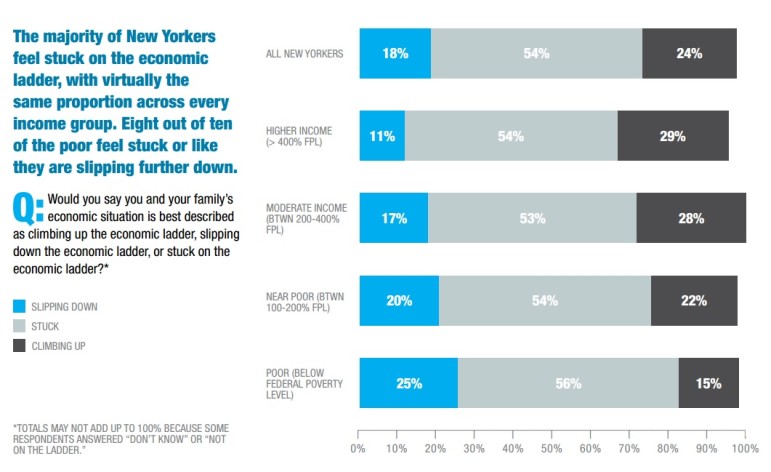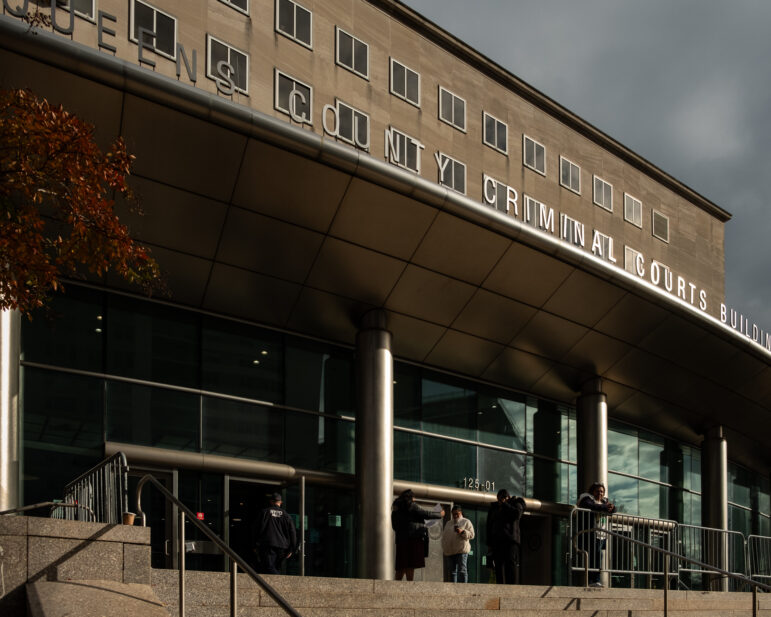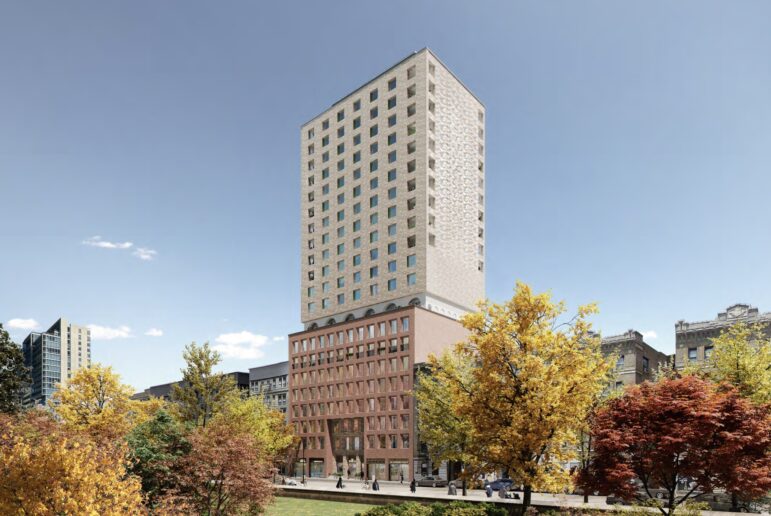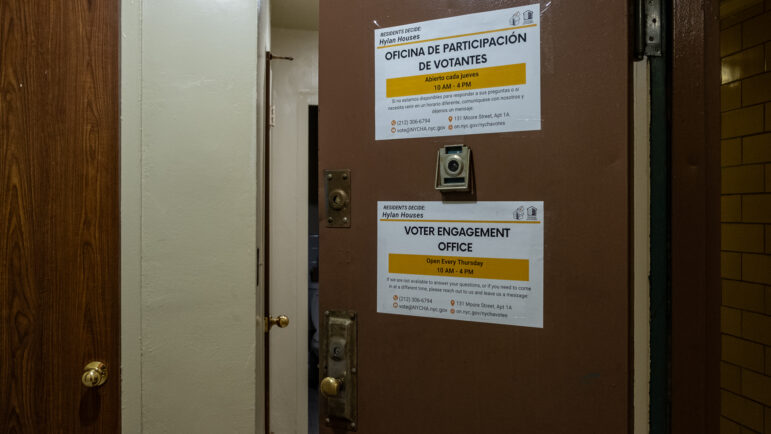
CSS
The good news is more New Yorkers feel they are getting ahead than believe they are slipping behind. The more interesting news, according to the latest Unheard Third survey by the Community Service Society of New York, is that the majority of city residents thinks that they aren’t moving at all.
According to the survey, an annual poll aimed at understanding what low- and moderate-income New York feels and wants, 24 percent of New Yorkers believe they are “climbing up” the economic ladder, 18 percent feel they are slipping down and 54 percent believe they are “stuck.”
As you go up and down the income ladder, the number of people who feel “stuck” barely budges: 56 percent of the poor and 54 percent of those in higher income believe they are in neutral. What changes from tax bracket to tax bracket is the balance between those who feel they’re moving up and those who think they’re losing ground. Among the rich, 29 percent think they’re gaining and 11 percent believe they’re losing. The script flips for the poor: 15 percent think they’re climbing and a quarter of respondents believe they are falling behind.
CSS, a City Limits funder, found that perception of economic prospects depended most heavily on the nature of employment. Full-time workers, unsurprisingly, felt better about their place in the economy than those working part-time or not at all. Those earning a salary were substantially more optimistic than people paid by the hour.
Interestingly, however, the differences were at the ends of the spectrum—in the number of people who feel they are climbing or slipping. Across every cross-tabulation, a plurality of respondents said they felt “stuck.”
Are people’s perceptions reality? It’s always hard to measure your progress relative to others’. If everyone feels they are getting ahead of the other guy, well, somebody has to be mistaken.
But CSS notes that economic perceptions have their own value and impact: If people think there’s no way to get to a better place, it undermines a basic offering of the marketplace, not to mention democracy. “In New York City, the idea that hard work and perseverance can lead to a better life is losing ground,” CSS wrote. “The signs are everywhere you look: in the stubbornly high poverty rates, the inadequate wages, and the exploding costs of housing and higher education that make it difficult for those at the bottom to work their way up.”
Depending on where you sit on the economic ladder, of course, being stuck might not be such a bad thing—many of us would love to be stuck around a $250,000 AGI. But the survey indicates that life on the lower rungs means multiple hardships: skipping buying school supplies, lacking health insurance, needing donated food, skipping medication or doubling up in someone else’s house. The perception of being stuck or losing ground, in other words, is linked to real-world problems.
When it comes to policy, CSS finds broad support for raising the minimum wage to $15, mandating paid family leave and making college more affordable. These are familiar rallying points. But according to the survey, mass transit is emerging as an issue with income-inequality impact and broad support for a solution: “Around one-third of poor and near poor working-age Latinos have trouble affording subway and bus fares,” the report says, and adds: “Eight in ten low-income New Yorkers, and over two-thirds overall, favor a reduced subway and bus fare program.”







